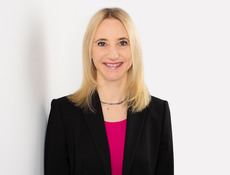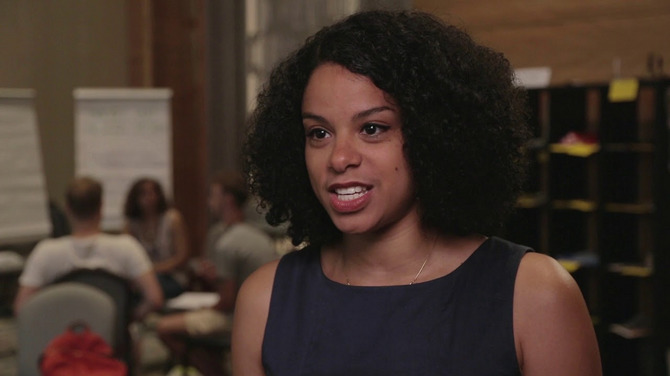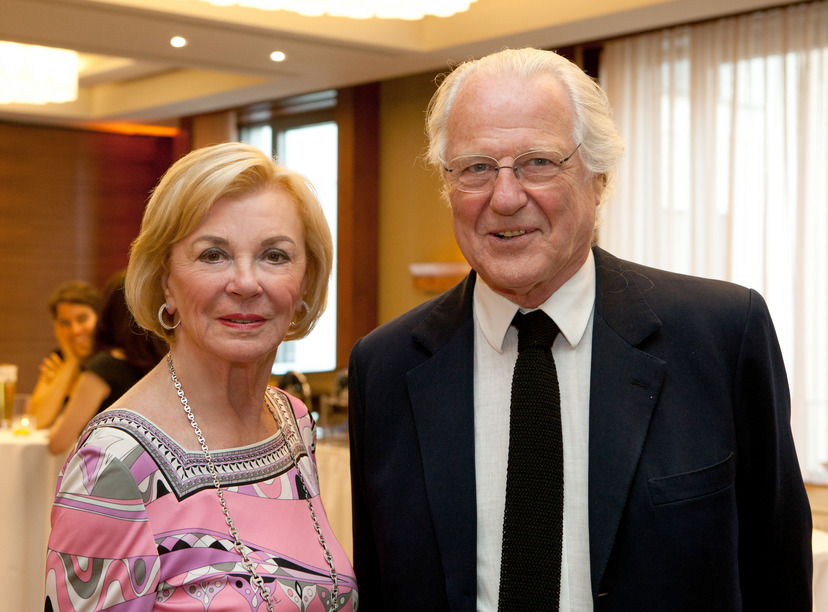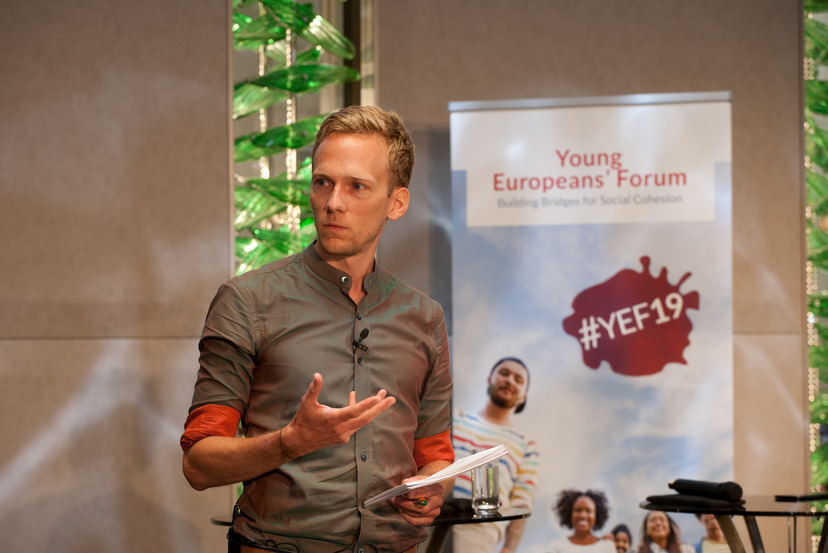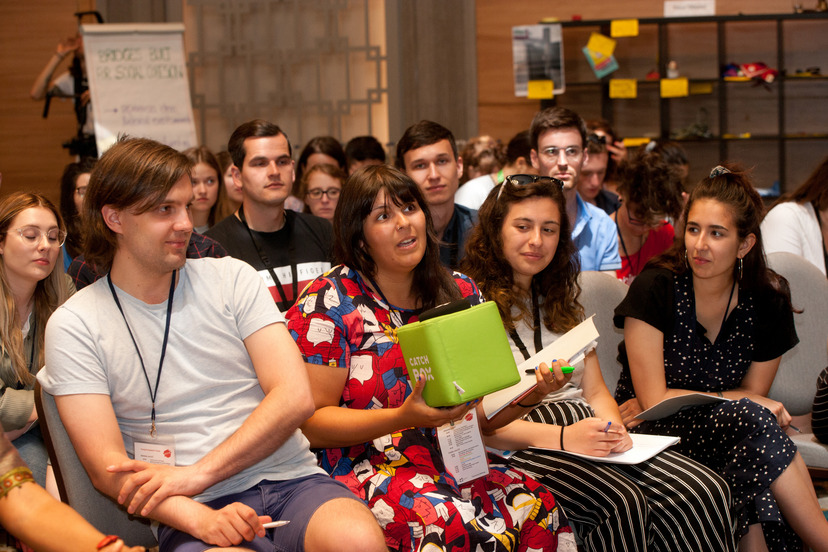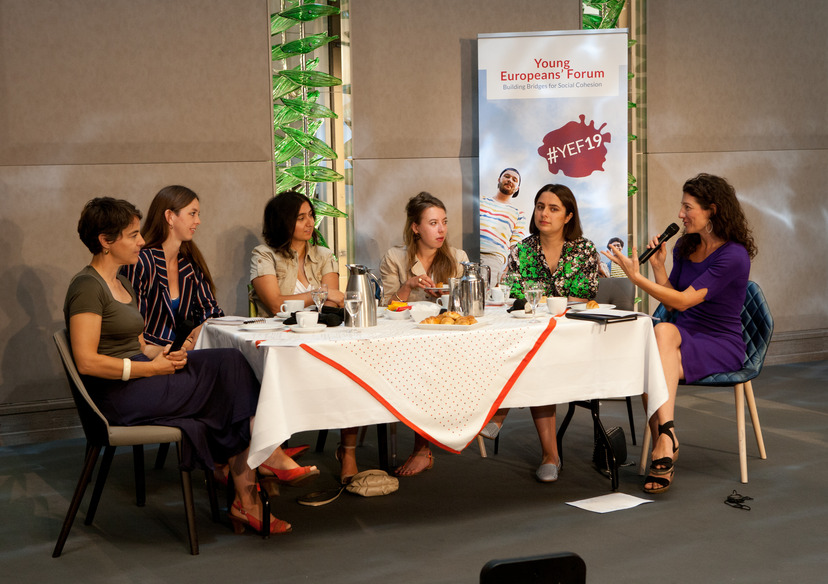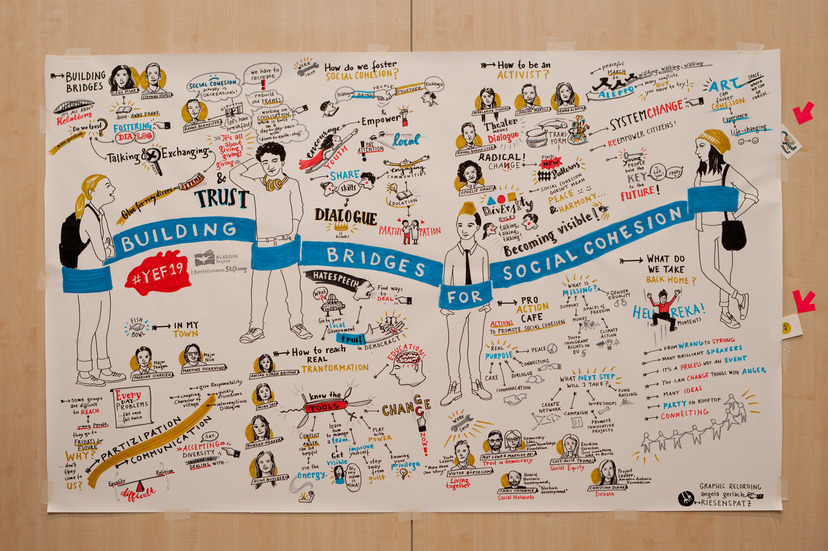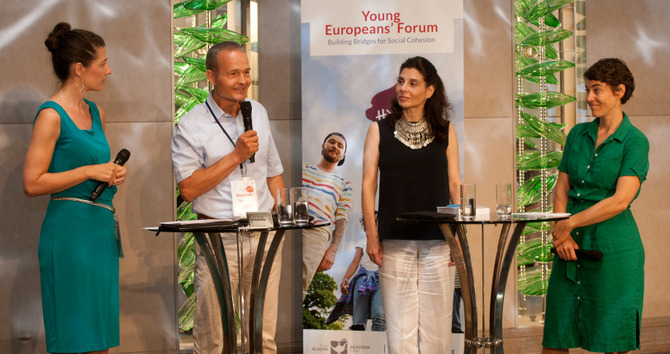“You are all bridge builders for social cohesion and, thanks to your engagement, you are helping shape a shared, peaceful and diverse future. Let’s use this forum to learn from and with each other!” With those words Liz Mohn welcomed 100 young adults from Europe who are dedicated to promoting social cohesion in their own countries. Her greeting marked the start of #YEF19, which she opened together with Baron Eric de Rothschild, co-founder of the Aladdin Project.
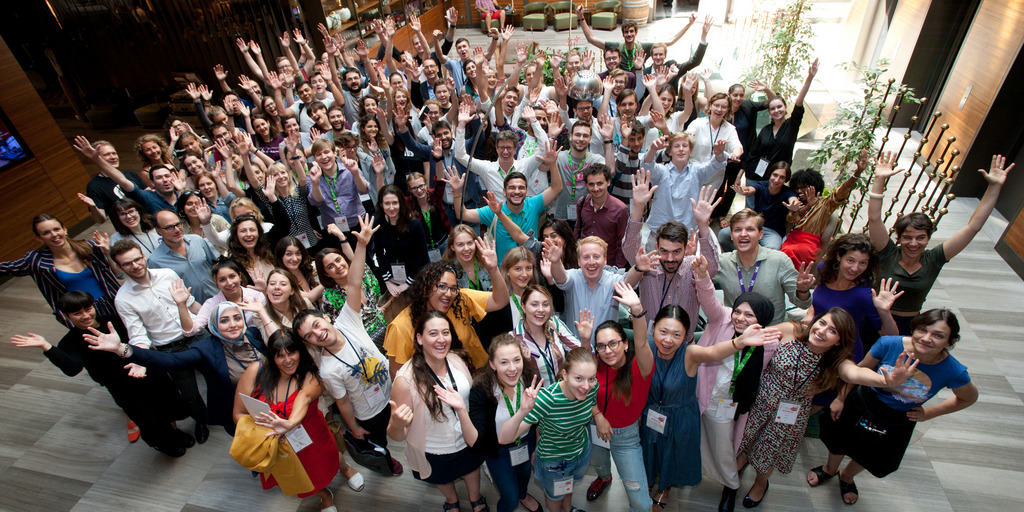
© Thomas Kunsch
Building bridges for social cohesion: Young Europeans’ Forum 2019
Social cohesion doesn’t happen by itself – it has to be actively shaped. How to achieve that goal was the topic discussed by 100 socially committed young adults from 24 European countries at our Young Europeans’ Forum (#YEF19) on “Building bridges for social cohesion,” held from June 25 to 27 in Berlin. The Bertelsmann Stiftung organized the #YEF19 together with the Aladdin Project and in cooperation with UNESCO.
Bridge builders for cohesion in the 21st century
The focus of the forum was the participants’ own social engagement. The young Europeans used a number of interactive formats to intensively discuss their own projects and activities. They worked together on solutions and ideas, learned from and with each other, and took advantage of the opportunity to network. In addition to the exchange among themselves, they received additional impulses for their social commitment during workshops on good practices and discussion sessions with activists and policy makers, gaining greater insight into what cohesion is and how it can be effectively strengthened.
Social relationships and interactions: a cornerstone of cohesion
Initial thought-provoking ideas and suggestions for taking action were provided in the keynote given by Hanno Burmester, head of the consulting firm Unlearn and policy fellow at Das Progressive Zentrum. He emphasized that cohesion must be actively shaped and that the potential for doing so can be found in everyday life. “Cohesion is something we can shape day in and day out, and we do it in the way we approach and interact with each other. Every individual must make his or her own contribution through his or her own actions,” he said. “One of cohesion’s cornerstones is the quality of social relationships. To create good, trusting relationships, we need spaces for interaction and dialogue. Democratic societies offer many possibilities for creating such spaces, even if this potential often remains unused. At the same time, however, we are experiencing a counter-movement, especially among the under-30 generation, who are getting involved for new and better cohesion,” he said, referring to the young Europeans’ own social engagement, among other efforts.
Discussing their own activities and examples of good practice
Inspired by the keynote, the participants convened in workshops to discuss how they themselves strengthen social cohesion. Their discussions focused on identifying common strategies and examples of good practice. In addition to numerous practical methods and tools for strengthening cohesion, the young Europeans shared their experiences of good practice with each other, pointing out that anyone who wants to strengthen cohesion has to bring people together, shape the dialogue and build trust. A particularly important aspect is strengthening cohesion at the local level, where people interact and shape their everyday lives together.
Inspired by exchange and robust role models
During a stage talk, activist and journalist Anna Alboth spoke of the march she organized to Aleppo, emphasizing how important it is for cohesion that people engage constructively with diversity and the conflicts that result. “We shared similar values: peace in the world, human rights, democracy,” she said. “We tried to treat each other fairly and speak respectfully to each other. And it was still so damned easy to end up in conflict with each other. Some people wanted to march faster, others slower. I learned a lot about conflict during this peaceful march.”
The participants were particularly impressed by four young women whose engagement was recognized when they were included in the Forbes “30 Under 30 Europe” list: Anisah Osman Britton, Mina Jaf, Morgan Meaker and Aline Muylaert. During a panel discussion, they talked about what makes change possible. Muylaert appealed to the participants, saying, “If you really want to contribute to the transformation, be sure to check again and again that you’re focusing on your main goals and issues.”
#YEF19 as starting point for a network of young, engaged Europeans
Day two was all about starting to transfer the many ideas and suggestions. During a Pro Action Café, the participants were able to put forward their own questions, issues and ideas and develop initial steps for both using what they learned at #YEF19 and activating their newly made contacts.
The feedback after the event was very positive, with participants saying that they were taking many ideas and approaches from the presented projects with them for their own work and that they had made valuable contacts for their future activities. They also said they were particularly encouraged by the numerous young role models who showed the various ways people can get involved and really make a difference.
